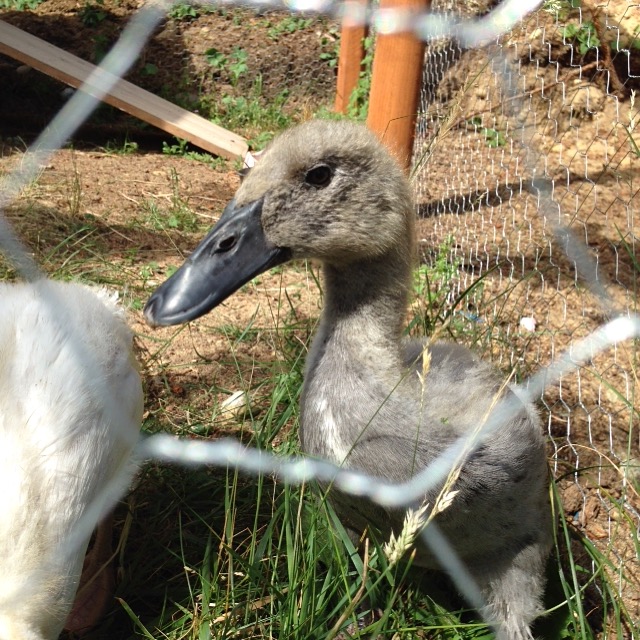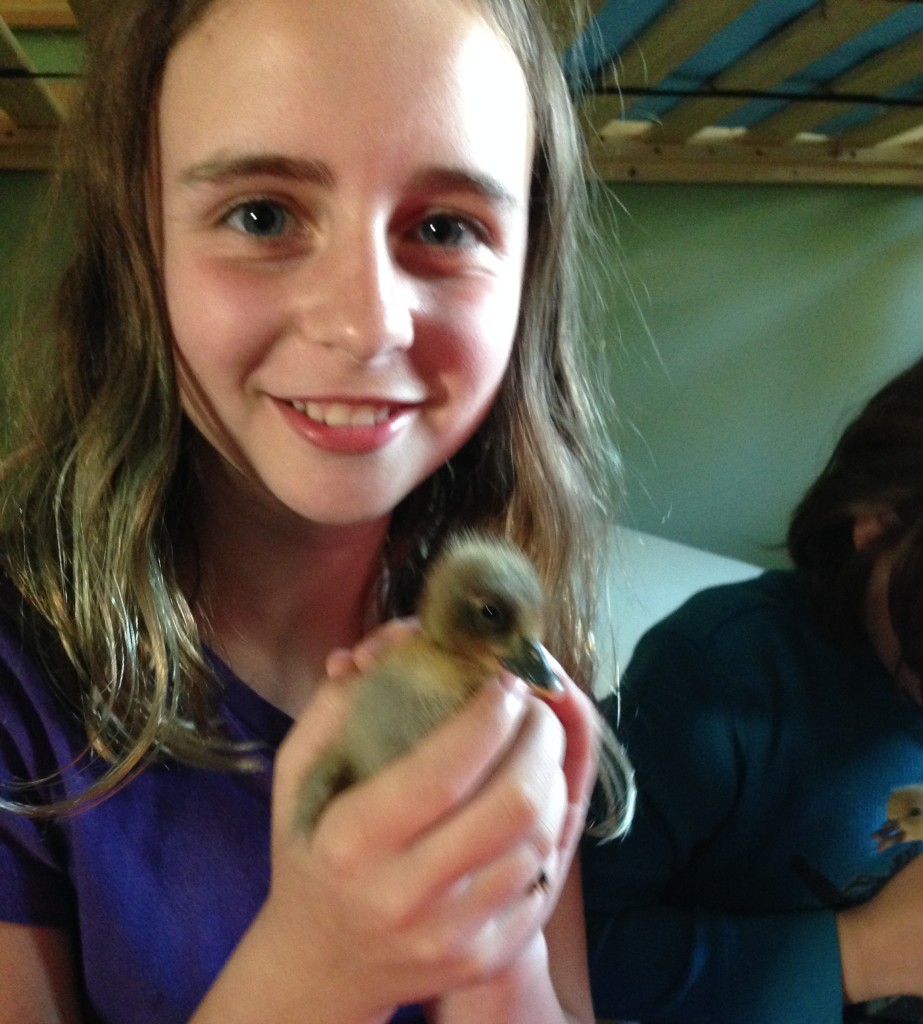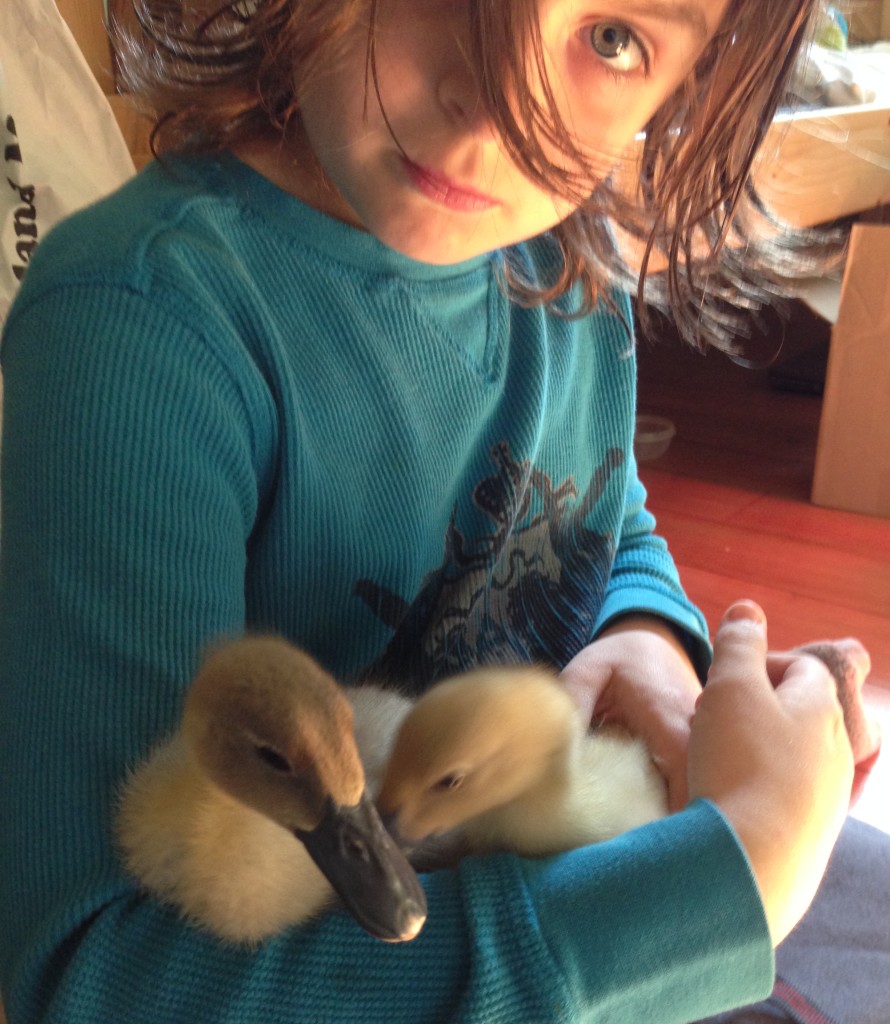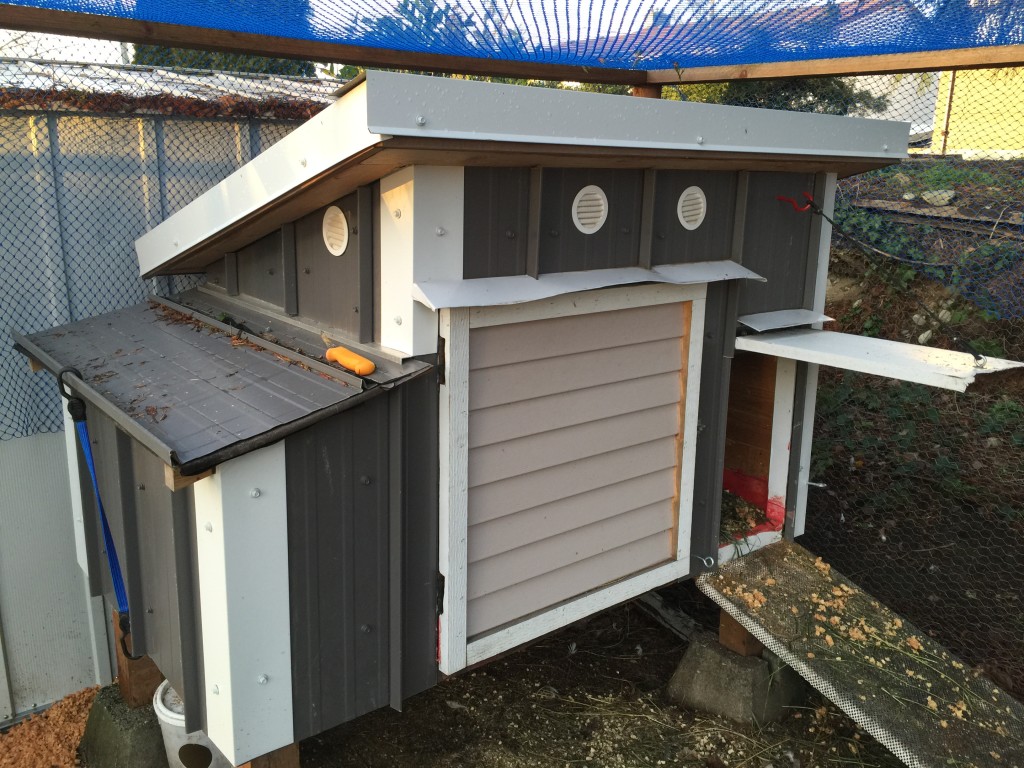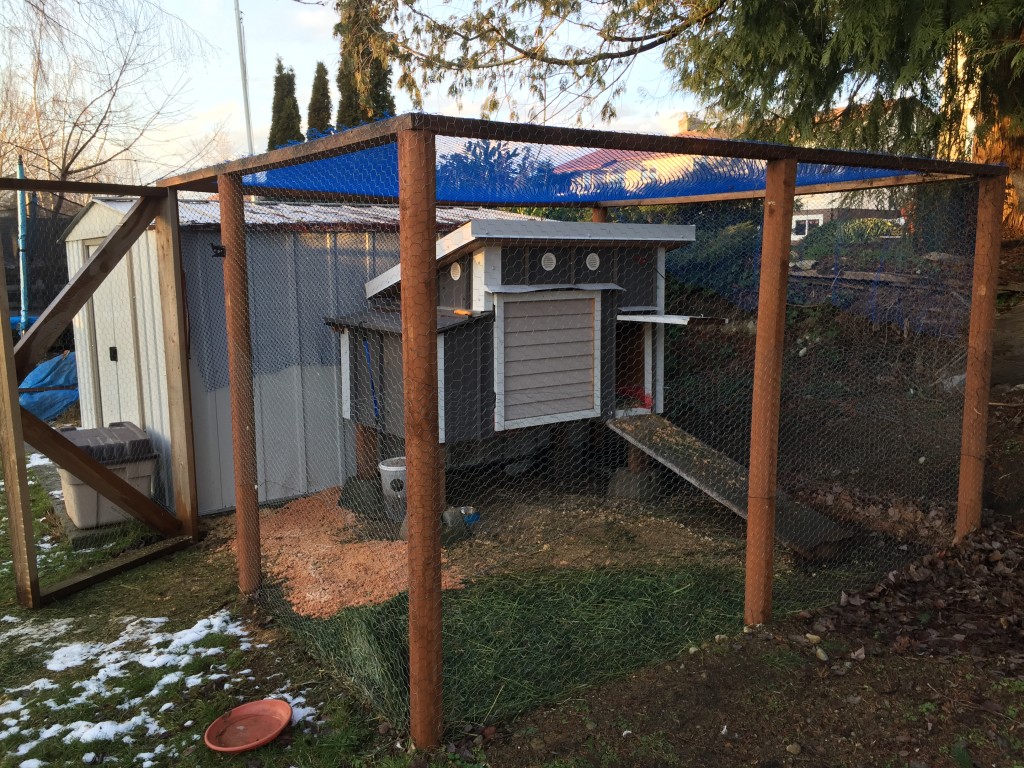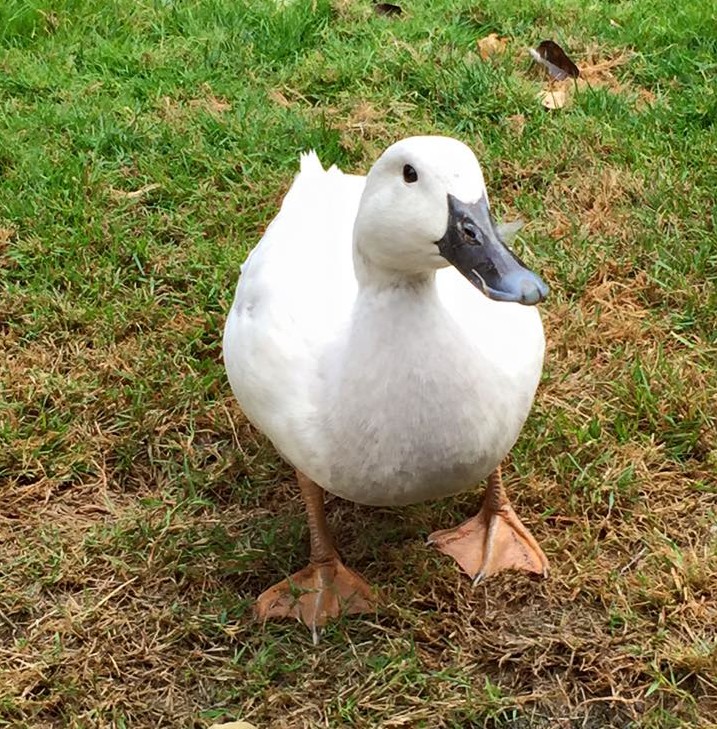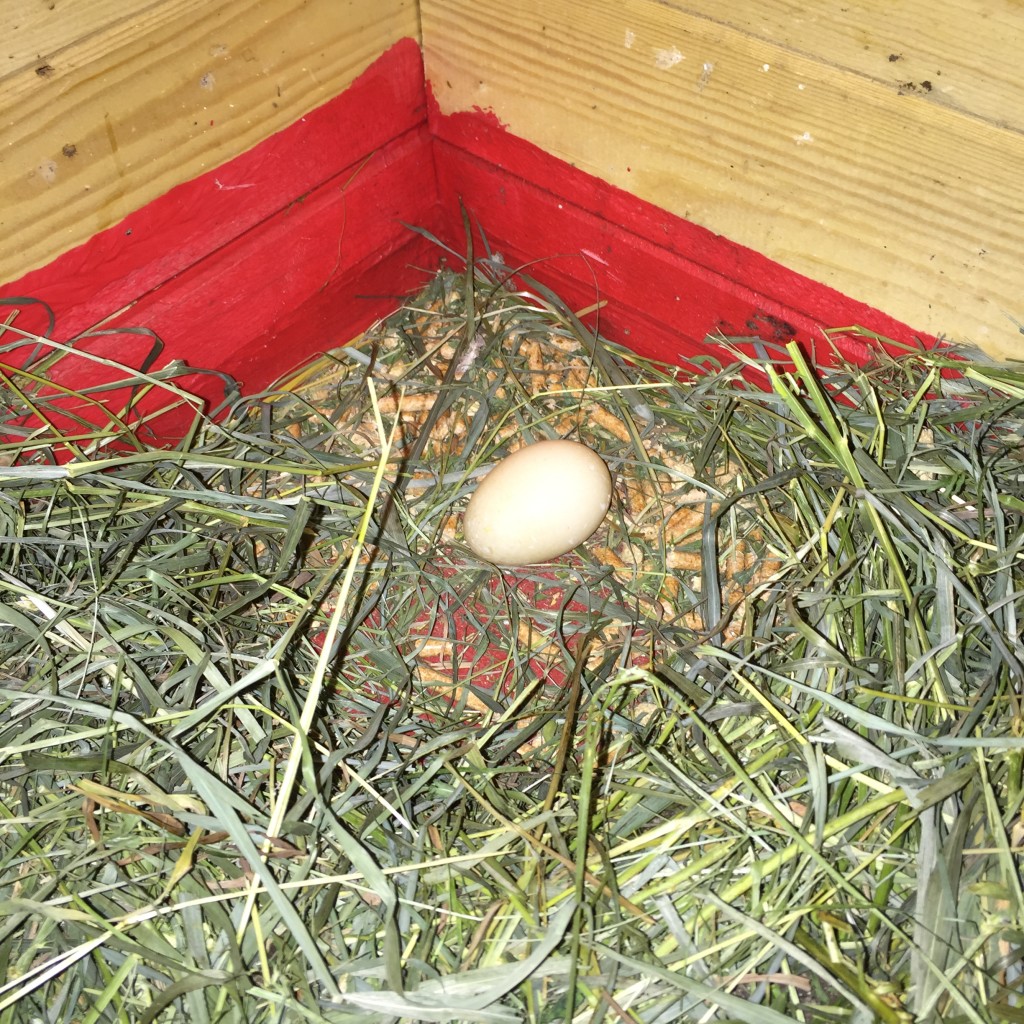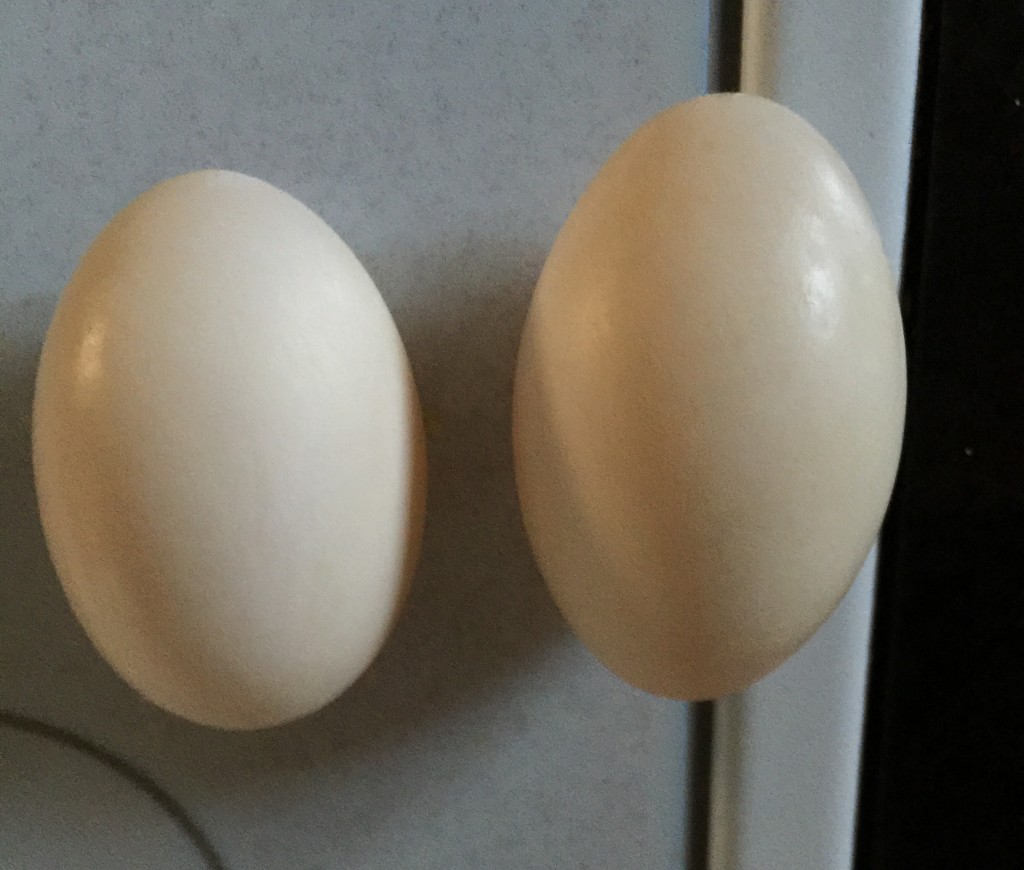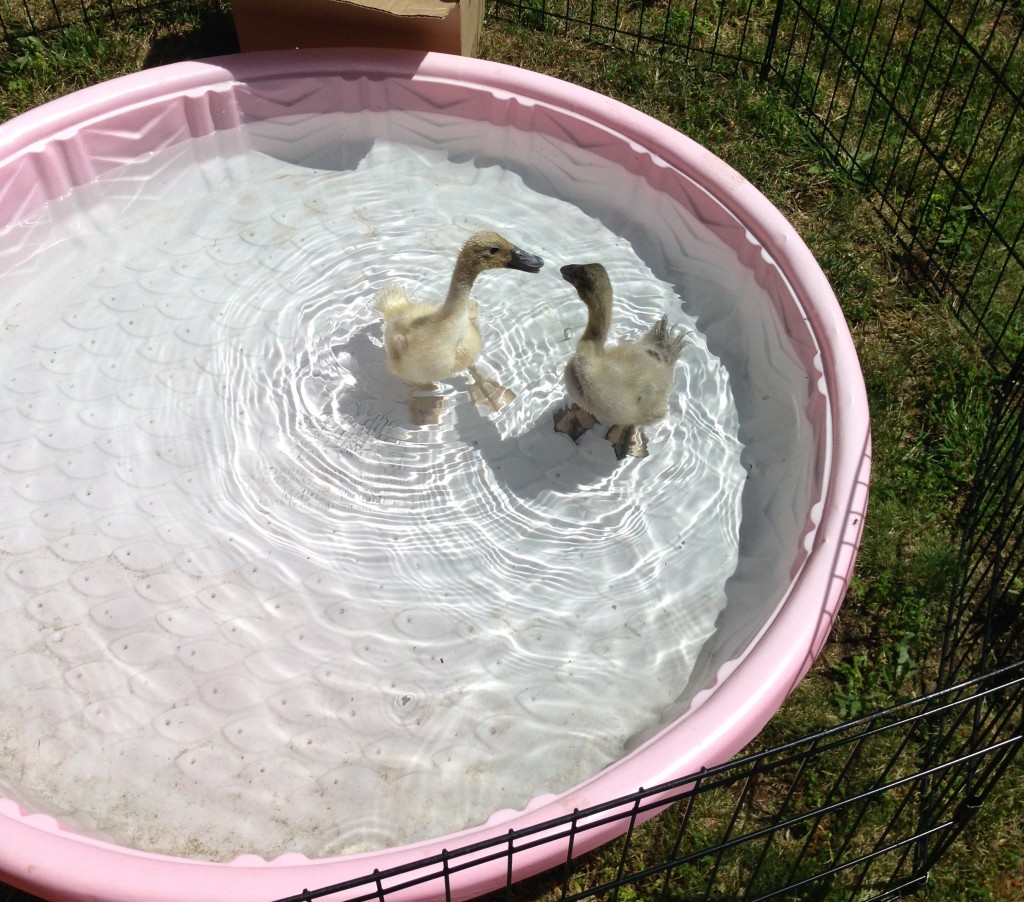What it’s like raising ducks in the “city”
When the Mayor and Council approved a new by-law allowing residential homeowners within the City of Powell River to keep poultry, my husband Shane and I decided it would be a great idea to get some chickens.
Both of us had grown up around chickens and we know the goodness that comes from a freshly laid egg. Our plans changed dramatically, however, when our 8 year-old son, Reilly, became fascinated with ducks after playing a computer math game involving the poultry.
Long story short, we added two day-old ducklings to our family at the beginning of May 2015.
Blue and Ducknado
The addition of Blue and Ducknado to our family has been an adventure. Our plan was to get female Welsh Harlequin ducklings due to the fact that they are a beautiful breed, prolific egg layers and can be sexed with approximately 80% accuracy by their beak colour in their first few days of life. However, it turns out they are hard to come by.
In the end, we got a call from a local farmer that two day-old Indian Runner/Blue Swedish ducks were available and we were welcome to come and pick them up. Reilly had waited two years since his initial fascination began, to add the ducks to our family. So we picked them up, with me secretly praying they would turn out to be females and we’d get eggs. We brought these two little fluff balls home not having a clue of their gender, but we immediately fell in love with their peeping little selves and set to work in raising them.
Making a home for them
We transformed a large plastic dog kennel into a duckling brooder, attaching a heat lamp to the outside to provide them the necessary warmth. Their habitat needed to be cleaned every day, sometimes more than once as they are messy. This was a big chore as I would carry the big kennel outside and down our stairs to the backyard in order to empty the wood chips and scrub out the inside.
As with any pet, the ducklings became mom’s project. The kids loved to play with them and would help out with filling their food dish but the dirty work fast became my job. Keep this in mind if you decide to add any pets or livestock to your family.
Our ducklings quickly grew and within a couple of months their size (and smell) meant it was time to move them outside to their fancy digs that Shane had built for them in the backyard. He constructed a very strong duck house with ventilation ports for our ducks and with the help of friends moved it out beside our shed and built a coop around it to keep them safe.
While we are technically in the “city,” we are still lucky enough to be surrounded by wildlife, and racoons, bears, and cougars all roam our area. For the first few months, I was petrified something would get into their digs and take out our “babies.”
Waiting on eggs
As spring faded into summer, and summer faded into fall, we still had no idea what sex of ducks we were raising. We learned online that female ducks generally quack and male ducks are quieter and whisper. I was almost positive I had two females going by this description, but the proof is in the egg laying. We had already read that the ducks should start laying eggs around six months of age and this time had come and gone and we hadn’t had a single egg. Shane said I was giving the boys a complex by calling them “the girls” but I was holding fast to my hope that we would eventually get eggs.
Finally, in January 2016, I went out in the morning to unlock the duck house and let “the girls” out – as is my normal daily practice – and lo and behold, I experienced “the moment.” There, in all it’s glory, was a beautiful, large egg! Within days we started finding two eggs at a time and I was relieved to know for sure that we have two female ducks. Their eggs have a larger yolk than a chicken’s egg but otherwise, I can’t tell the difference. We haven’t bought eggs since January.
We have become very attached to Blue and Ducknado. They are bonded, and you’ll rarely find them apart from one another. This is something important if you decide to keep ducks – they are very social and must have a friend. You can’t get just one.
Each morning, one of us unlocks the keyed bike lock we used to secure their duck house door. We read that racoons can actually learn to open combination locks so we decided to use a keyed lock. The ducks come out of their house, we check for and collect the eggs – they don’t always both lay every day – and then fill up their feed dish with organic duck feed. Ducks need a constant supply of water in order to swallow their food and they quickly muddy their water so each morning their water bucket is emptied, hosed out and refilled.
Our ducks have two kiddy pools in our backyard and those are emptied out and refilled every few days. Throughout the day, as long as we are home to keep an eye on them, they are out and about in the backyard aerating our lawn and rooting around for bugs. In the evening, they generally will put themselves to bed when it gets dark. We head out and lock their duck house and close the door to the coop each and every night. Sometimes, they don’t put themselves to bed and they need to be put to bed before being locked up.
As with any pet, our ducks do take a little work, but all in all, they are pretty easy to care for and if they have area to roam, bugs to eat and access to water they are happy as can be.
Our family is very happy to be able to have the opportunity to live in a community which values home-raised, organic food practices, and the addition of ducks to our family has been a fun and interesting experience.
Quack Quack!!
Aaron Reid
Latest posts by Aaron Reid (see all)
- What it’s like raising ducks in the “city” - March 17, 2016
- Get out and play ball (slo-pitch, that is) - March 15, 2016
- Stuff to do this weekend: The Winter Market in Powell River - March 27, 2015


